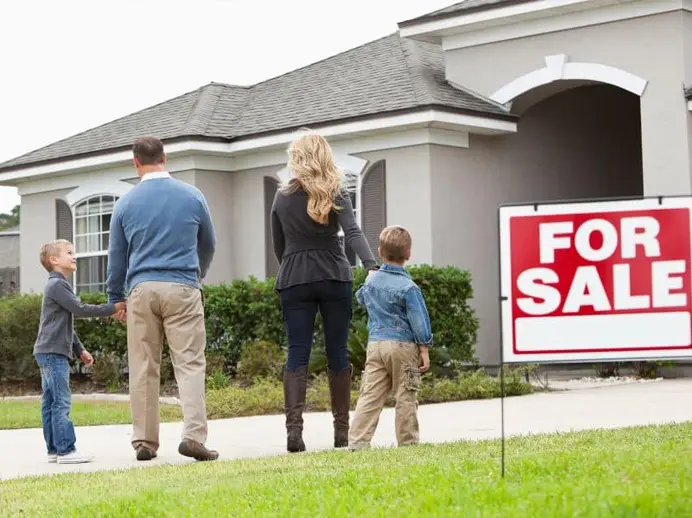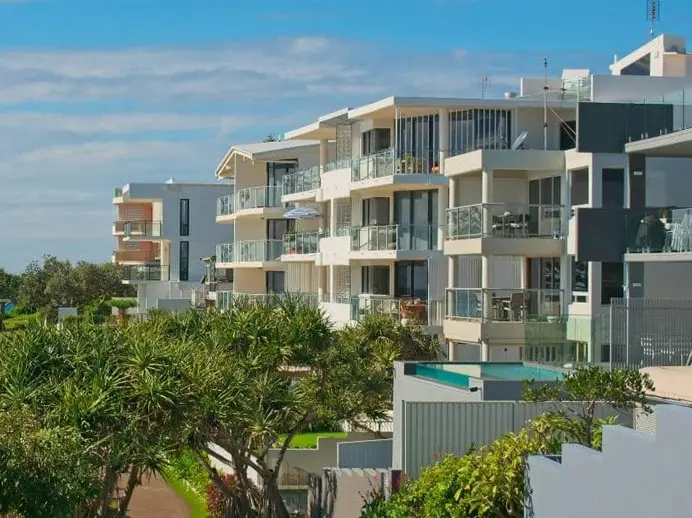21 April, 2018
Body Corporate, Podcasts
I Want to List My Unit on Airbnb. Do I Need Permission from the Body Corporate?

Do I Need Permission From The Body Corporate To List My Unit On Airbnb?
Have you heard of Airbnb? You probably have and heard also about owners of properties who are making significant money letting their place out on the Airbnb platform. But if you're an owner of such a property in a strata complex, are you allowed to do it? It's a commonly asked question, and in this podcast, Body Corporate expert, Tom Robinson, a lawyer at OMB Solicitors, explains more.
TRANSCRIPT
Dan: Tom, for those unaware of what Airbnb is, what is it?
Tom: It is that short-term, do-it-yourself type letting, which essentially means as an owner, you can let out part or all of your lot to someone else via that online marketplace. Which is interesting because we have been seeing real estate agents are taking control of people's Airbnb accounts and operating it like another type of rental units for their portfolios.
Dan: It's been a game-changer hasn't it? I mean, for many people that once would struggle to try to let out their property, now they've got this incredible platform that reaches the masses.
Tom: It does, and even on that, as a bit of an interesting fact. More than 50 million people in more than 34,000 cities around the world are using Airbnb. So it's big, and it's understandable that it's here to stay, and there's a reason why our body's corporates are wanting to know when owners are using and listing their lots and units on Airbnb.
Dan: At a practical level, if I'm on the Gold Coast and I own a unit within one of these body corporate complexes, do I need to actually ask permission?
Tom: Look, it's a very good question, and I'm going to answer it in a typical lawyer way, and I'm going to say maybe. It's all dependent on the type of body corporate, being that we will have bodies corporates that will be affected by the use of Airbnb, and there will be bodies corporates that are not so affected by Airbnb. And it comes down to not only the type of body corporate, but the regulations, so those bylaws that are in place and apply to all owners and occupiers.
Dan: Is there examples of Airbnb and how it might impact upon the body corporate? By positively and negatively?
Tom: Yeah, definitely. From a good perspective to start with is looking at bodies corporates that are probably negatively affected. They're the ones that are more or less are going to want to know when lot owner's listing their unit on Airbnb. Those types of effects that we have seen come across, mostly relate to the type of disruption that is occurring, and that's by way of your increased noise, your increased foot traffic, the increase in use of common property facilities that the body corporate, the actual physical body corporate itself is not used to.
Tom: Which leads into other issues like insurance. Those bodies corporates that are not designed for short-term accommodation poses a risk to the body corporate in terms of their insurance policy, and whether or not an owner using a lot for a short-term accommodation basis where the building or the body corporate was never designed that way. Is that going to increase premiums, and some insurers are saying "Yes." Is there appropriate fire safety services systems in place in those types of bodies corporates that aren't designed for that short-term accommodation like a hotel-style body corporate? You know, if they don't have those types of fire safety systems or evacuation plans in those buildings, and is that a risk if something does go wrong. Those are the effects that one mostly is seeing by Airbnb and most bodies corporates that are not designed, and never were designed for that short-term type accommodation.
Dan: For these body corporates that are interested n in moving down this path, what do they do? I mean this sounds like an awful amount of work to get ready for this.
Tom: Look, there's a lot involved, and I think from a body corporate's perspective they're generally quite limited. If we look at a couple of quick examples, taking an example of a high-rise building in Surfers Paradise, which has very few permanent residences, it's designed as that holiday-maker's hotel-type building. Is the whole concept of that body corporate has been designed for short-term accommodations?
Tom: When we look at those smaller bodies corporates, those little three-story walk-ups that might be down at Burleigh Heads where a majority of residents are permanent, they're either owner-occupiers or permanent letting. They don't have an on-site management or any letting staff.
Tom: When we look at those impacts that are on that body corporate, how does the body corporate then try to regulate that Airbnb? And that is by way of its bylaws. The biggest issue with regulating through our bylaws is we don't have a lot of guidance to go by in terms of what our legislation says, except that our bylaws cannot be oppressive or unreasonable. And with respect to that, we can't restrict or prohibit someone from using their lot in a lawful way. You're allowed, as an owner, and your individual property rights, you are allowed the usual lot and let your lot out in any way that is lawful.
Tom: Where we have seen a bit of a win for not so much bodies corporates, but a win for regulating this short-term accommodation and protecting the bodies corporates who haven't got it in there, is by your local council laws. So Gold Coast City Council, as of 2016, require an application for material change of use if someone wants to use their lot for short-term accommodation. That application carries a application fee of over $8,000, which is quite hefty-
Dan: Yeah.
Tom: ... Potentially off-putting for people who are using their lots in short-term letting.
Dan: Tom, the starting point for a body corporate that might be listening to this podcast, what do they do on a case that they've got an increasing number of people within their complex that are wanting to play in the Airbnb patch? What do they do now?
Tom: The first thing and the best thing to start with, is review of your bylaws. You want to review your bylaws which you can update, basically at any time throughout a year, and that is having that review to identify what areas need to be regulated more. So the bylaws, as we say, can't be oppressive or unreasonable, which means they can't be prohibitory or restrict the use of a person's lot. But what they are designed to do is regulate, not only the use of common property, but to a smaller extent the use of someone's lot and their lot property, to a point where the use of the common property and lot doesn't cause a nuisance. Doesn't disturb the peaceful use and enjoyment of other people, owners and occupiers, within that body corporate.
Tom: A review of your bylaws is a starting point, because in there you can look at regulating and putting in requirements that an owner must notify the body corporate of their lot being listed in Airbnb. They must ensure that the owner of the lot provides bylaws to every person who comes and stays in their lot under the Airbnb platform. The only difficulty with this, and this is where we will be looking to our legislative writers, is the enforcement of that. Our current enforcement process under our body corporate legislation, is the Commissioner's Office for Body Corporate and Community Management, the issue that we face is trying to reach someone who is in breach of the bylaws when they're gone within four days. We don't have a process, a dispute resolution centre, that can deal with that type of complaint in such a short turnaround. Which means the breach happens, and then is remedied, because they're no longer there. So that's where we're probably falling short.
But at least the bylaws are an informative way to regulate as best we can, as a starting point to Airbnb, and then to supplement that, is looking to our local governments and making sure that those laws are in place. Like Gold Coast City Council putting in the material change of use application requirement. And if lot owners aren't complying with those local laws, it's up to our local governments to enforce that, and that is via a notification basis. So yeah.
Dan: There's a lot to it, isn't there?
Tom: There is. There is a lot to it, and there's a lot that we're hoping to see come about, and we are starting to see that change, and we're starting to see that there will be an ability under the bylaws, hopefully in the coming years, for a property law reform that we're going for at the moment, where we might be able to have some more ability to not over-regulate, but have a more of an ability to deal with these types of matters through our bylaws. Which is realistically the best ability and tool for a body corporate.
Dan: Tom, thanks for joining me.
Tom: Thank you very much, Dan.
Contact our Gold Coast Lawyers team today!
Our Services
Property
Buying, selling or leasing? OMB Solicitors can help you today with all your property law needs.
All Property Services
Business Law
No matter what your business law issue is, OMB Solicitors have a wealth of experience across an array of commercial law practice areas.
All Business Law Services
Wills & Estates
Is your estate plan safe from litigation? Is your will up to date? Who will make decisions for you if you can’t?
All Wills & Estates Services
Family Law
Separated or contemplating separation? Considering a property settlement? OMB Solicitors can help you today with all your family law matters.
All Family Law Services
Body Corporate
Need body corporate advice? Look no further! At OMB Solicitors we are experts in all matters relating to strata and bodies corporate.
All Body Corporate Services
Litigation
OMB Solicitors have an expert team of litigation lawyers to assist in not only litigation, but also exploring other ways of resolving disputes.
All Litigation Services
Insurance
OMB Solicitors’ experienced insurance lawyers are on hand to assist with your insurance law matter.
All Insurance Services
